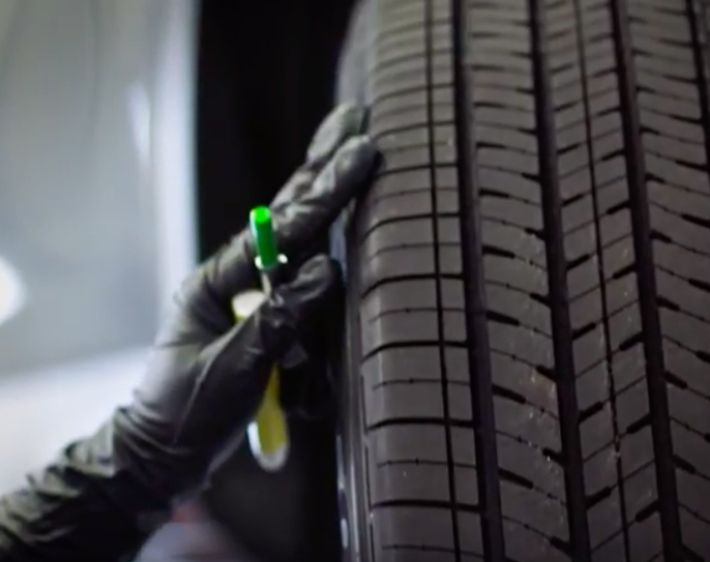Rain is weather. Snow is, too. So, that must mean that all-weather tires work for both raindrops and snowflakes, right? As with almost everything else, the answer is: it depends. As seasons change and road conditions worsen, it's essential to understand the differences between all-weather tires and winter tires.
What Are All-Weather Tires?
All-weather tires, also known as all-season tires, offer a mix of the benefits that you gain from summer and winter tires. To maintain their signature well-roundedness though, all-season tires compromise on some features for more extreme conditions like heavy rainfall or significant road icing.
For example, all-season tires can be louder and less responsive than summer tires because they have deeper treads. On the other hand, all-weather tires' treads are not quite as deep as winter tires', which reduces their stopping power and traction on icy roads.
All-weather tires offer many benefits for drivers who live in areas with milder seasons. For example, drivers with all-season tires can enjoy the convenience and cost-savings of not needing semi-annual tire changes. Plus, all-season tires offer a quiet ride and more than enough traction for everyday driving! Although all-weather tires are great for many people, motorists in places with particularly harsh winters or extra-long rainy seasons should look for more specialized options.
What Are Winter Tires?
Winter tires are designed to meet the challenges of rough winter weather, thanks to their softer rubber, specialized tread design, and traction-enhancing biting edges. If you live and drive in a climate that experiences severe cold, ice, and snow, then winter tires definitely can come in handy.
Wondering how differences in rubber and design impact winter tires performance as compared to all-season tires? Here's how these components set the two types of tires apart.
Tread Rubber
Most winter tires contain softer rubber than all-season ones. The purpose of such rubber compounds is to prevent tires from stiffening in low temperatures, which reduces traction when you need it most. Winter tires' unique rubber compounds are designed to remain flexible, enabling them to grip the road better. That's one reason many technicians recommend switching to winter tires when the temperature consistently dips below 45°F, even if the forecast calls for clear skies.
Tread Depth and Design
Winter tires come with deeper tread depths and more detailed tread patterns than all-weather tires do. The deeper treads of winter tires grip the road, enhancing traction. The unique tire tread patterns channel snow and slush out and away from the tire.
Biting Edges
"Biting edges" are tiny, shallow slits within a tire's tread blocks. Each slit "bites" the road as a tire turns, improving traction on snow and sleet. While both all-season and winter tires have biting edges, winter tires have more than all-season tires, giving them additional traction in wintry road conditions.
Overall, winter tires have an advantage in areas where winter temperatures regularly hit 45°F or below. In a test conducted by Popular Mechanics, winter tires improved performance in braking (up to 5%) and cornering (up to 20%) on snowy and icy roads compared with all-weather tires.
Are you getting ready to truck through a harsh winter? Visit your local Firestone Complete Auto Care for excellent winter tires like the Bridgestone Blizzak and the Firestone Winterforce. (And don't forget to properly store your regular tires!)
All-Weather vs. Snow Tires: Which Should You Get?
The decision of whether to equip your vehicle with winter tires or all-season tires depends on where you live and drive.
If you drive somewhere that rarely gets hit with snow or ice, all-weather tires should be just fine. But if snow, ice, and freezing temperatures are a common occurrence, it's best to invest in a reliable set of winter tires.
Dashing through the snow takes on a whole new meaning when you do it with the right tires. Shop tires online or visit your nearest Firestone Complete Auto Care today!



